Keep cashew trees, worry about crop failure
Mr. Vu Dang Gioi, a cashew farmer in Long Giao town (Cam My district, Dong Nai ), said that cashew trees are very sensitive to the weather. There have been many failed cashew crops due to unseasonal rain and cold dew.
The 2023-2024 cashew crop will be sunny, and farmers expect a bumper crop. However, since Tet, the weather has been extremely hot and dry. Cashew trees cannot absorb water, their flowers dry out, and their fruit set rate is very low.
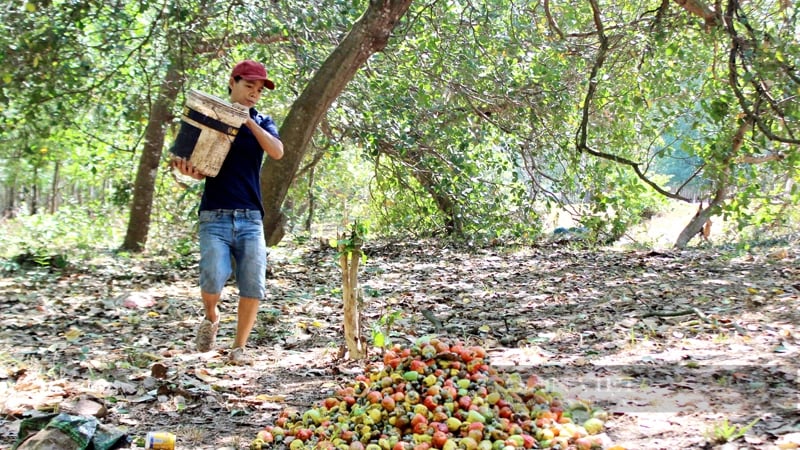
Farmers harvest cashews in Dong Nai. Photo: Nguyen Vy
Not only was the crop poor, the price of cashews at the beginning of the season was also low. Last year, traders bought cashews for 27,000-28,000 VND/kg, but now they are only 24,000-25,000 VND/kg.
The price of materials is high but the selling price is low. While the productivity is not up to the mark, cashew farmers are facing many difficulties in reinvesting in the next crop. "If this situation continues, farmers will have to switch crops because they are no longer interested in cashew trees," said Mr. Gioi.
On an area of 0.8 hectares in Bau Ham 2 commune (Thong Nhat district, Dong Nai province), Mr. Hoang Kim Dien has also been attached to cashew trees for many years. However, due to low profits, he decided to cut down all of them to switch to growing avocado and durian.
He does not know whether the price of avocado and durian will still be as high as now when the harvest season comes. However, because the cashew trees are no longer effective, Mr. Dien is forced to change the production direction.
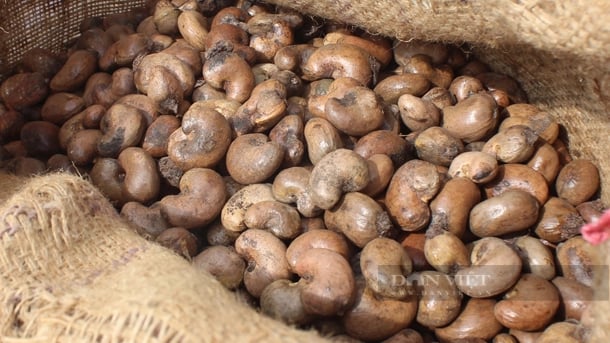
Not only was the crop poor, the price of raw cashew nuts at the beginning of the season was also low. Photo: Nguyen Vy
Thong Nhat district currently has nearly 2,000 hectares of cashew trees, concentrated in Bau Ham, Quang Trung, Hung Loc and Lo 25 communes. However, the area is decreasing every year. "If cashew prices continue to fall at a low level, many farmers will cut down this crop," said Mr. Dien.
Cashew businesses do not encourage farmers to keep cashew trees.
Hoa Phu Clean Agriculture Cooperative in Bu Nho Commune (Phu Rieng District, Binh Phuoc ) has a total area of 97 hectares. Mr. Ha Thanh Thuan - Chairman of the Board of Directors of the Cooperative, predicts that this year's cashew crop will continue to fail.
According to Mr. Thuan, in remote areas, poor or arid land, many farmers do not have the conditions to switch to other crops. The more unstable the weather is, the lower the cashew yield.
In Binh Phuoc, cashew is the main crop. However, many farmers who stick with cashew trees face many difficulties. The ability of local authorities to support cashew farmers is almost negligible, mainly supporting the poor to eliminate hunger and reduce poverty.
Even when the cashew crop is good, the income of cashew farmers is still low. Because on average, after deducting expenses, farmers still earn less than 30 million VND/year from 1 hectare of cashew.
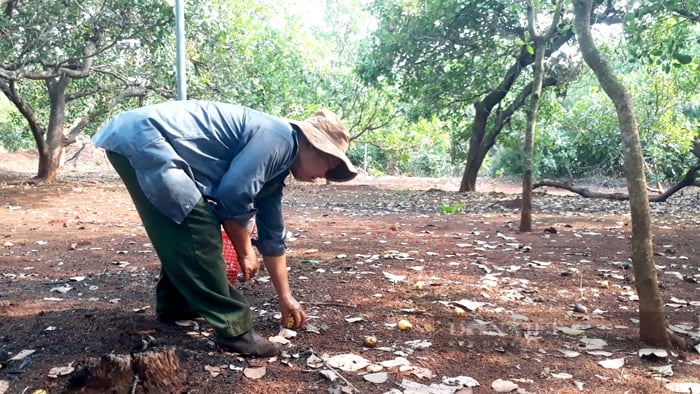
Farmers harvest cashews in Binh Phuoc. Photo: Tran Khanh
Only when income per unit area increases can farmers keep cashew trees. Hoa Phu Clean Agriculture Cooperative has to find another way by intercropping under the cashew canopy.
Mr. Thuan said he has seen many places switch from cashew to durian. But durian cultivation requires techniques and irrigation water. The output of durian is unstable, because without deep processing, nothing can be said.
For the past 3 years, the cooperative has converted about 40 hectares of old cashew trees to grow jackfruit. The cooperative has also built a factory to process dried jackfruit. When the price is high, the cooperative sells fresh jackfruit. When the price of fresh jackfruit is below 10,000 VND/kg, it is dried and sold.
"Income from jackfruit is 5-7 times higher than from cashew. The cooperative is also testing growing turmeric under the cashew canopy with positive results," said Mr. Thuan.
Mr. Ta Quang Huyen - Member of the Standing Committee of Vietnam Cashew Association, Director of Hoang Son 1 Joint Stock Company assessed that domestic cashew productivity is not high.
Right in the cashew capital of Binh Phuoc, good cashew gardens can yield 2-3 tons/ha, but these gardens are few. On average, each hectare yields only 1.5-1.6 tons of cashew nuts.
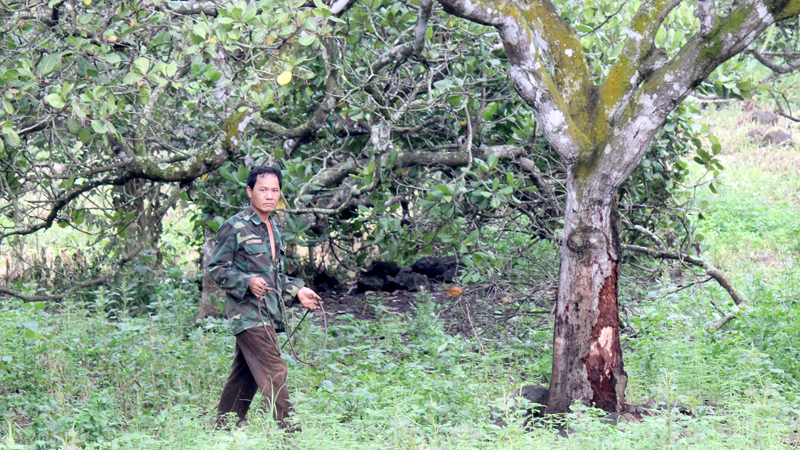
Enterprises recommend that in suitable places with conditions, farmers should switch to other crops with higher economic efficiency instead of keeping cashew trees. Photo: Nguyen Vy
According to Mr. Huyen, Vietnam is now a middle-income country and is no longer poor like when the Government used cashew trees as a poverty-reducing crop.
The domestic cashew industry currently covers about 350,000 hectares. However, Mr. Huyen said that the income from cashew trees is only about 10-15 million/ha/year. The value of cashew compared to durian, pepper, coffee... is very low. The selling price of cashew is also difficult to increase as much as other agricultural products.
In places with poor soil and difficult conditions for growing other crops, cashew should be grown because it is an adaptable crop. "But in suitable places with better conditions for growing other crops, farmers should not be forced to keep cashew trees," said Mr. Huyen.
Mr. Huyen himself is in the cashew business, but his point of view is that when domestic cashews run out, he will buy foreign cashews. When foreign cashews run out, he will switch to other work.
The final effect is the effect that contributes to the entire economy, not the effect for a particular industry.
"Vietnam does not need to try to grow more cashew trees to have more raw materials, while the overall value for the economic sector is not high," Mr. Huyen shared.
Source



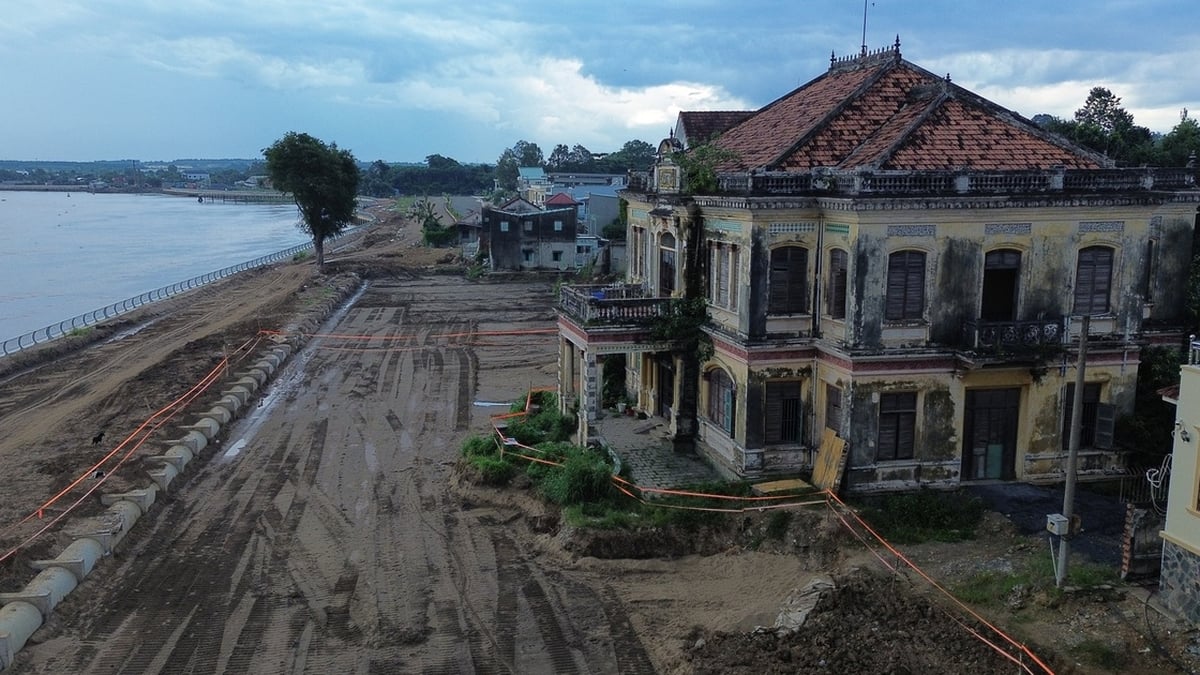


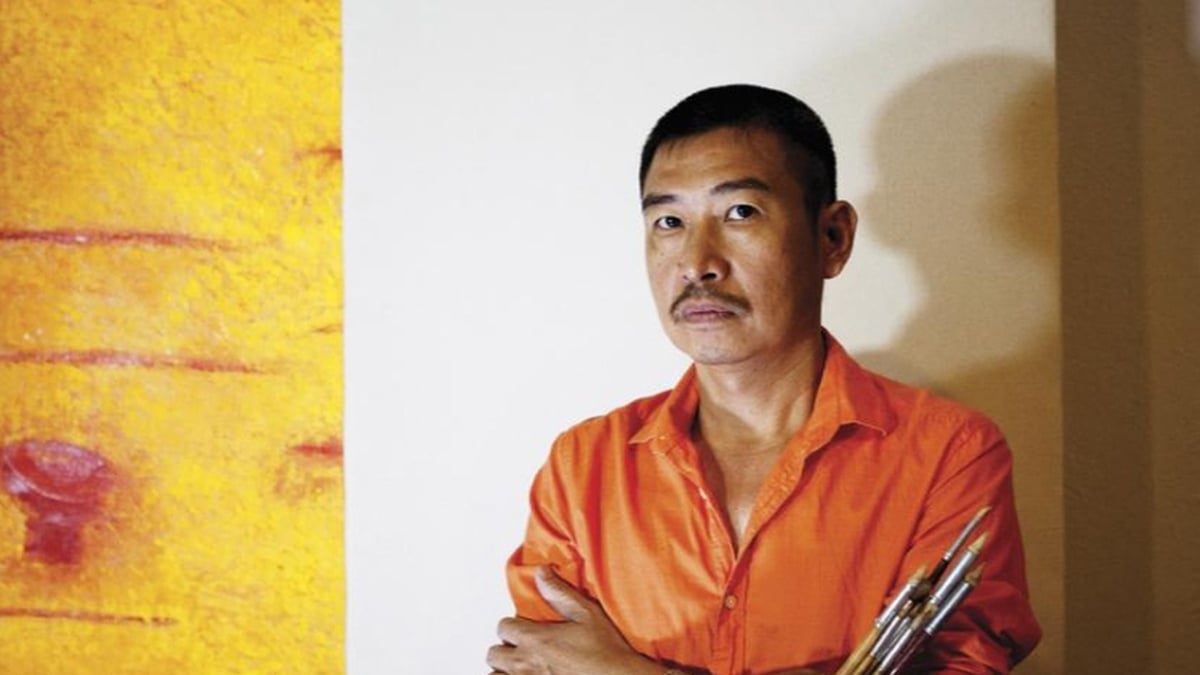
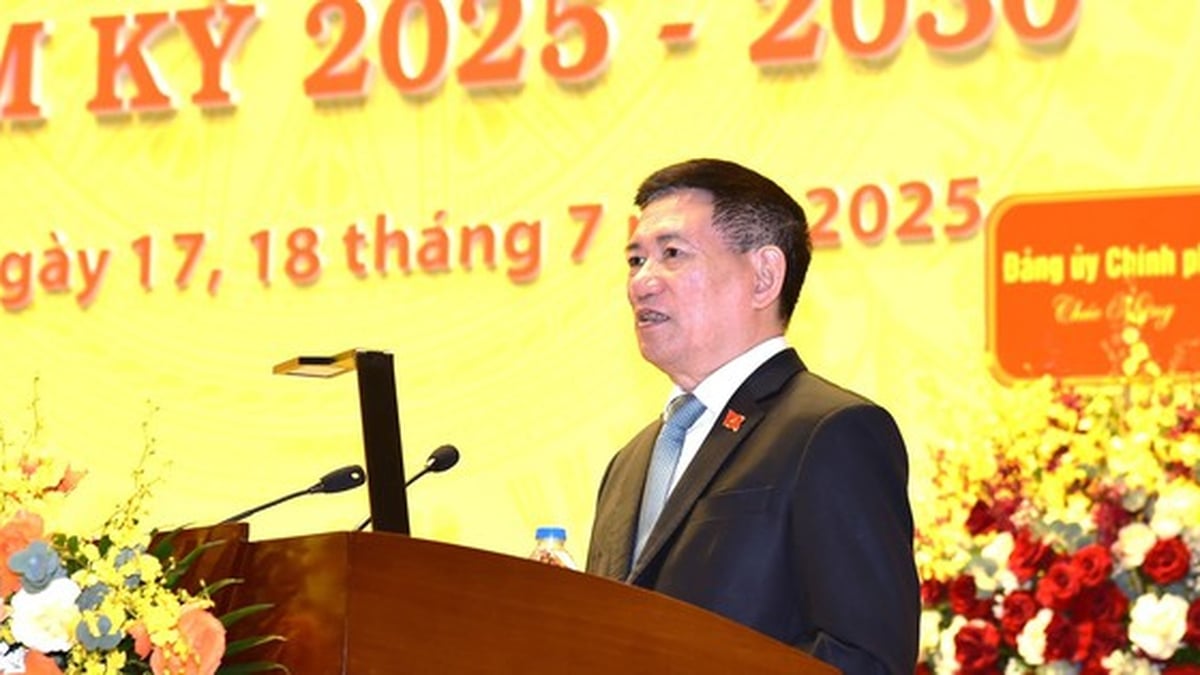

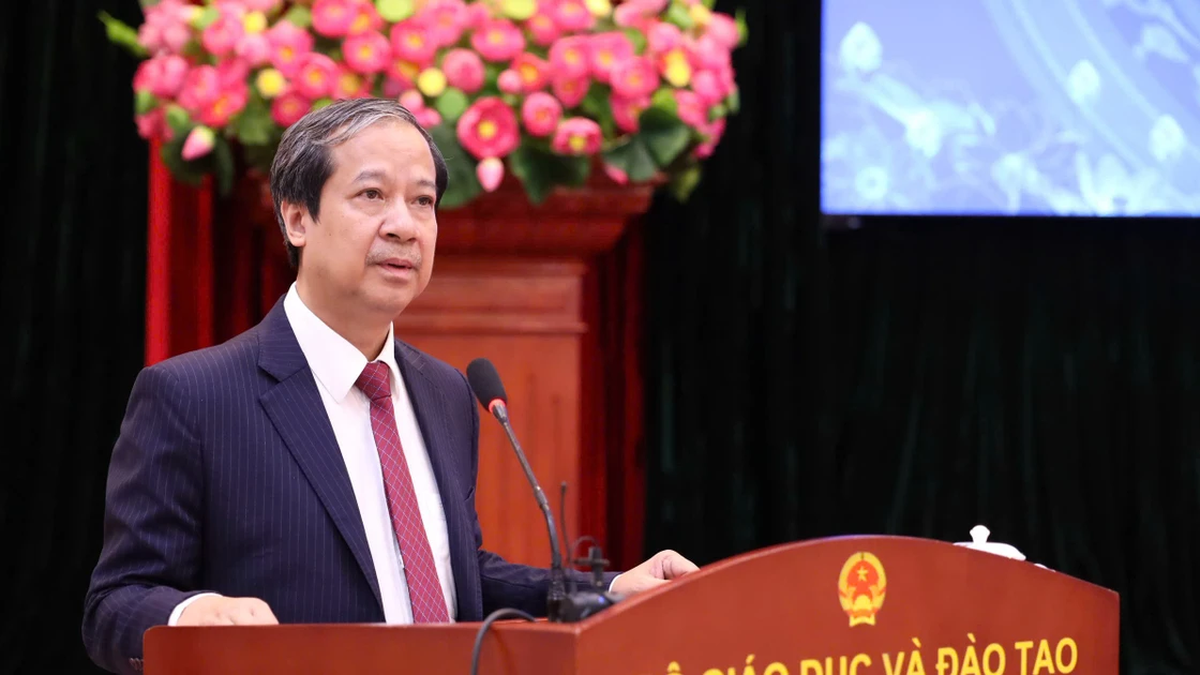
























































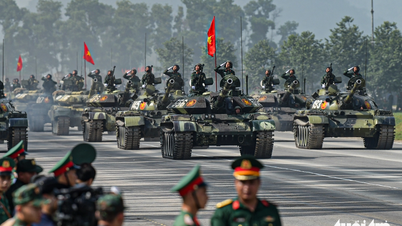

































Comment (0)